#taylor swift delicate
Photo


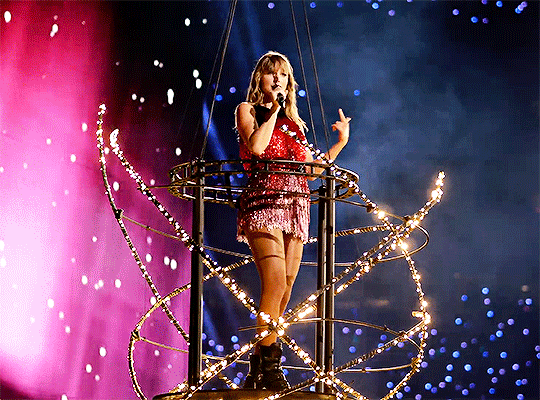
sometimes when I look into your eyes I pretend you're mine, all the damn time | 2 days till The Eras Tour
#countdowntilltheeras#mygifs#myedits#taylor swift#taylor alison swift#rep tour#reputation stadium tour#taylorswiftgif#taylorswiftedit#tswiftgif#tswiftedit#delicate#taylor swift delicate#reputation tour#tscreators#tsuserlizzie#tsuserjen#networkthirteen
1K notes
·
View notes
Text
It's real lesbian yearning hours right now. It's giving enchanted by taylor swift. Kiss me by sixpence none the richer. Linger by the cranberries. Crush and naivity by like spinning. Untouchable by taylor swift. Closer by travis. A sorta fairytale by tori amos. Drops of jupiter by train covered by taylor swift. Solid ground by kiko a. We fell in love in october by girl in red. You give me something by james morrison. It's nice to have a friend by taylor swift. DELICATE BY TAYLOR SWIFT.
#taylor swift#gaylor swift#lesbian yearning#delicate#taylor swift delicate#lesbian#musings#lesbian musings#sapphic#wlw#kiko a#tori amos#sixpence none the richer#kiss me#like spinning
41 notes
·
View notes
Text

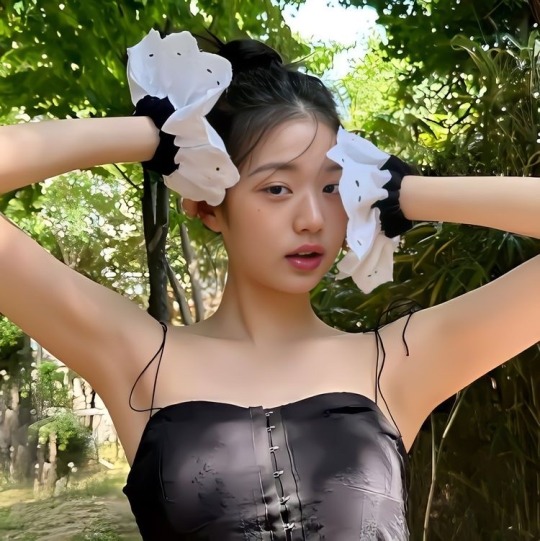

Summer is you and me laughing uncontrollably at the middle of the night 🍉
https://twitter.com/imnotIuna
#Spotify#kpop#kpop aesthetic#kpop gg#kpop icons#kpop layouts#ive kpop#ive#wonyoung#ive wonyoung#summer#summer vibes#taylor swift#taylor swift delicate#twitter#izone#izgone#izone wonyoung#wonyoung pfp
5 notes
·
View notes
Text
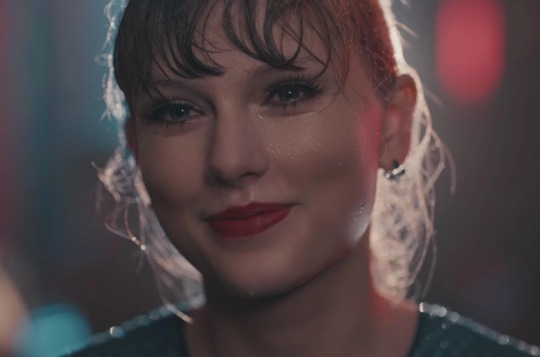
Sometimes I wonder; when you sleep
Are you ever dreaming of me?
Sometimes when I look into your eyes
I pretend you're mine, all the damn time
'Cause I like you
Is it cool that I said all that?
Is it chill that you're in my head?
'Cause I know that it's delicate
@taylorswift @taylornation
#taylor swift#taylor nation#swifties#the eras tour#ts reputation#reputation#reputation era#taylor swift reputation#delicate#ts delicate#Taylor Swift delicate
4 notes
·
View notes
Text
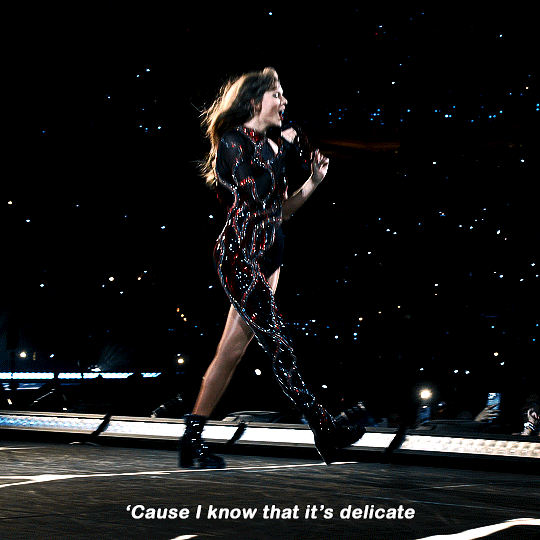
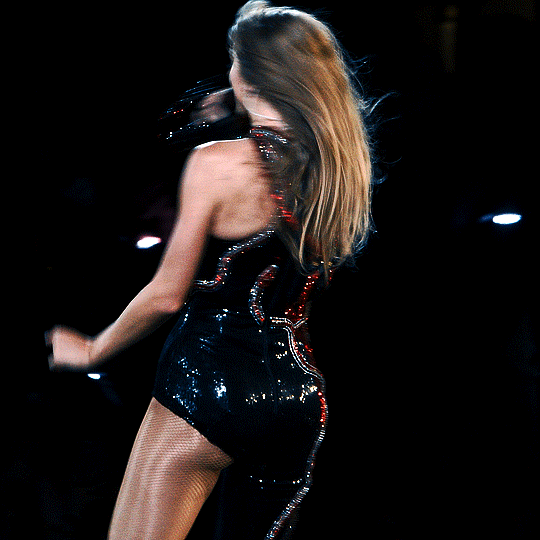
Is it too soon to do this yet?
#taylor swift#tswiftedit#taylorswiftedit#tswiftgif#usersar#userrobin#tscreators#tsedit#userelena#tswift#eras tour#chewieblog#t swift#flashing tw#reputation#delicate#*gif#1k
2K notes
·
View notes
Text
This Ain’t for the Best
Description: Mutual pining. Classic hunting scenarios. Sharing a bed. Wearing the other’s clothes. Confessions. Friends to lovers. Tswizzle title. Need I say more?
Pairing: Dean Winchester x gn!Reader
Warnings: a little bit of violence, me cramming in every cliché i can because i love the classic fanfiction tropes more than i love breathing
Word Count: 5.9k
A/N: i was kicking my feet and giggling as i wrote this, especially when i snuck in criminal minds AND taylor swift references. i love writing and never beta-reading or editing what i’ve written. catharsis.
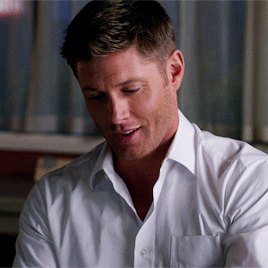
Crashing at Bobby’s had its benefits.
First, we had the comfort of knowing where we were going to sleep at night. It was good to have a bed waiting that wasn’t in a motel room.
Second, there was almost always good food around. I had a knack for home-cooked meals, and it was much easier to be appreciated for it when I actually had a stove to cook on.
Third, there were boundless opportunities for Sam, Dean, and I to kick back and actually relax.
That’s how I ended up in the kitchen, laughing with Dean over old stories we’d told a million times before. He reached in the fridge, pulling out two bottles after we’d come down from the most recent remembrance of an old case. He cracked open the top of his beer, then my drink, sliding it towards me on the counter. Sam and Bobby strolled in st that moment, pausing when they saw us.
“You both woke up like an hour ago,” Sam said, unamused.
“6pm somewhere,” Dean and I said in unison.
We looked at each other with a small laugh, leaving Bobby and Sam rolling their eyes. I took my drink and stood a few steps away.
“We should really get going, though, Dean,” Sam stated.
“Where?” Bobby asked.
“We were planning on doing a run to the grocery story. I don’t want us to eat up all your food without repaying you, and we’re almost out of beer,” Sam said, pointedly looking at his brother.
“This one needs more of those little fruity drinks, too,” Dean teased, nodding at the bottle in my hand.
“Hey, it’s still a malt liquor. Just one that I like,” I said with a laugh.
They said their goodbyes, and I started walking into the front room. Bobby watched the door for a few moment after the boys left, then turned in the archway and locked his gaze on me as I sat on the couch.
I looked at the bottle in my hand. “I know y’all are all about beer, but I can’t help if I prefer something with a little flavor.”
“That’s not why I’m looking at you,” he grumbled, fed up with me already. “What in the world is goin’ on with you and Dean?”
“Huh?”
He furrowed his brow. “Don’t act all shy, now. You two have been flirting nonstop lately.”
“What’s new? We’re both pretty flirtatious in general.”
“Not like this,” he said with a shake of his head. “I don’t know the last time I saw that boy blushing, or you getting all flustered like a teenager.”
“I am not,” I scoffed. “Nothing’s happening, Bobby.”
“I’ve known your for five years, now, and I’ve known those boys since they were kids. You stayed in my house for a year, too. You can’t hide this kind of thing from me.”
“I’m not hiding anything. I’m an open book.”
Now, he scoffed. “Yeah, and I’m running for president.”
I rolled my eyes, taking another drink. He came closer, sitting down next to me.
“If you keep denying all this…”
I swallowed, finally resigning. “There’s nothing to do about it, Bobby.”
“Yes, there is. You could tell him.”
“It wouldn’t do any good. You know how he is, he doesn’t want to be tied down. If we don’t make any moves or promises or whatever, a lot less doesn’t get broken.”
He raised a brow. “I do know how he is. For you, he’d make an exception.”
“I don’t think so. Besides, it’s all just flirting for him. Doesn’t mean anything.”
“Are you blind?”
I looked at him, brows raising. He shook his head, picking at the label on his bottle.
“Sorry. I just— I know what I’m seeing, and I really don’t think it’s just a little friendly flirting for him, either,” he said, looking at me again. “I really think you should speak up while you’ve got the chance to. We don’t often get good things with lives like ours.”
“I know. I just don’t want to screw things up.”
“You’re gonna end up screwed if you keep pushing it down, anyway.”
I sighed. He took that signal as a time to change the subject, and for that I was thankful.
“Well, let’s find you the next case, huh?”
The next one was an easy find, and it would’ve been great to break the news to the boys when they got back, if not for a very clumsy Sam walking in the door with a twisted ankle.
“You what?” Bobby asked, incredulous.
Sam sighed, pouting. “I rolled it when I stepped in a pothole.”
Dean shook his head, clearly hiding his amusement as he helped his brother hobble towards a kitchen chair.
“So, no case, then?” I asked.
Bobby perked up. “No, you and Dean can still go. I can take care of Sam.”
“Bobby…” I warned, seeing through him instantly.
“Yeah, that’d be great,” Dean said, cutting off my death stare. “When was the last time we went on a case, just you and me?”
I looked at him.
“Seriously, you guys can go without me,” Sam said. “It might be good for you, Y/N. You seem a little restless.”
“I am not,” I defended.
Bobby chuckled. “Sure, you’re not. But I’m not suggested, I’m telling you. Get out of my house.”
I glanced at him, offended. “I am a delight.”
“You are, but I still want you out. You become much less delightful when you’re antsy.”
Dean laughed. “Come on, it’s only a state over, right? If we start driving now we can make it by sundown.”
I took a moment.
“Alright,” I nodded, heading towards the stairs to gather my things.
The case was a hot mess, to say the least. We couldn’t figure out what we were hunting to begin with, and the only true consistency is that the deaths were messy, leaving each victims with missing livers. It wasn’t until we were at the most recent site of the death that things took a little bit of a turn.
“What do you think?” Dean asked, leaning in my direction.
I shrugged, looking around the house.
“It seems… clean.”
“I mean, I guess. We haven’t found hex bags or EMF readings—”
“No,” I cut him off, gesturing around the living room. “Like physically clean. Nothing is out of place. Look at the mantle.”
I walked over, using my gloved hand to wipe along the surface. I showed him my hand.
“Clean. Not even dust.”
He raised a brow. “And that matters because…”
“Because we’re supposed to be looking for some monster-unknown that never cleans up their messes. Every other scene we’ve been to has been a wreck, so why is the only thing out of place the blood stains on the floor? This is also the first time it’s been in the victims house.”
He paused. “You’ve been watching Criminal Minds again, haven’t you?”
I rolled my eyes, taking off the glove.
“That’s not important right now,” I shook my head, standing next to him again. “And, for the record, it’s helping our case.”
“Right,” he chuckled. “Well, profiler, why don’t you tell me more about what you’re gathering from the scene.”
“Don’t patronize me,” I said with a laugh.
He smirked, placing a hand on my back.
“Let’s get out of here and figure out why things changed.”
We followed dead-end leads all over town, until we hit a lucky streak.
“Check this out,” Dean said, calling me over to the table in our room. “Remember that dive bar our last vic was seen at? Look at this dude’s last social media post.”
I walked over, resting a hand against the table as I leaned in. I looked at the laptop, raising a brow.
“Same place.”
“Same place,” he confirmed. “Wanna check it out? See if anything suspicious is up?”
“You sure you don’t just want to hit the bar?”
He looked up at me with a quirked brow.
“What do you think I am? Drinking on the job. I’d never,” he feigned innocence.
I snorted. “Right. So not you.”
“Leave in ten?”
“Sounds good to me.”
We hit the road soon after, winding up at the bar with our eyes peeled for any suspicious activity. There was plenty for us to see in a seedy town like this, but there was only one interaction that truly piqued our interested. I nodded at the man who was paying a little too much special attention to a woman, drawing Dean’s gaze in that direction. He was equally skeeved out. We kept an eye out for another hour or so before the weird activity took another step into the creep category.
We followed out the man who we caught following the woman, all the way to a neighborhood just outside the city. We made our move as soon as the man walked up to her house.
I followed Dean up to the house, and we started to slink around, waiting for any sign of trouble. I first checked through a window near the front of the house.
“Nothing,” I said, motioning for us to move further.
He took the lead, and we came up on a window that looked into the dining room. He slowly looked inside.
“Oh, you’ve gotta be freakin’ kidding me,” Dean mumbled, pulling his head back from the window.
“What?”
“Well, do you want the chance to play out your little crime show fantasies?”
I raised a brow. He sighed, shaking his head.
“That’s not— well, it is a monster in there, but not our kind of monster,” he said, tilting his head.
“It’s a human?”
He nodded. “Looks like it. Nothing supernatural that I can see. She’s passed out now, but let’s get a move on before he starts in on her.”
He started walking towards the back of the house, but I stopped him before we got to the door.
“Can— How do we do this?”
“What do you mean?”
“That’s a human. We can’t just chop his head off or exorcise him.”
“We could still stab him.”
“But should we?”
He gave me a very unamused look, waiting for me to make my point.
“Can we attempt to just— Kick his ass and leave him to deal with life in prison? Only go for the shot if it’s necessary.”
He softened. “He killed people, Y/N, does he really deserve mercy here?”
“Do you really think the prison system is mercy?” I asked, earning a slight chuckle. “I just feel weird about killing humans unless our lives are in immediate danger.”
“Okay,” he nodded. “Okay, we’ll play it your way. But if anything goes sideways—”
“Then you feel free to shoot him.”
He nodded curtly, then we continued to the door. He opened it carefully, and we stepped inside, checking our surroundings before we headed towards the woman in the dining room. We saw the man first, his back to us as he sat across the table from her.
“Playing house? Really?” Dean quipped, causing the man to whip around.
My gun was pulled before the man had a chance to stand up and react. He looked between us, obvious annoyance on his face.
“You’re not cops,” he stated.
Dean smirked. “No, we are much worse news for scumbags like you.”
“Now,” I started, “you can try and fail to fight your way out of here, or you can sit still while my partner here makes sure you’re sitting nice and pretty for when the cops do show up.”
Dean moved before he had a chance to formulate a response, dragging him out of the chair. The man tried to put up a fight, but it was pretty quickly silenced by means of a fist to the face. Dean left him on the ground after a few minutes and a roll of duct tape.
“Nice,” I commented, then put away my gun.
I moved to the woman at the table who was still passed out. I checked for a pulse, and when I was sure she was still breathing, I started undoing the binding that kept her to the chair. Dean called in an anonymous tip to the police station as I finished up clearing her of everything. She started waking right as I was about to try and move her to the couch.
“Hey, hey,” I said quietly, trying to give a little comfort before her panic set in. “You’re safe now, alright? You’re fine.”
Her eyes opened, and she immediately clung to me when she saw the man on the ground incapacitated.
“What happened?” she asked with a quivering voice.
“Me and my friend Dean saw this guy creeping around your house. We wanted to make sure everything was okay, and when we found out it wasn’t, we found a way in. The cops are on the way now.”
She nodded. “Thank you. Both of you.”
I glanced back at Dean with the ghost of a smile on my face. He raised his brows at me.
“Why don’t we get you to the couch?”
“You’re not staying?” she asked, still in shock.
“No, we gotta leave,” I said, helping her to the couch. “We’ll stick around for a few minutes outside till the cops get here, though.”
“Okay,” she nodded along absentmindedly as she laid on the couch.
I walked back to Dean, motioning for us to go outside. He looked back down at the man for a moment who was still passed out, then followed behind me. We got back to the Impala and waited.
“Weird to be thanked,” I said, watching the house.
He hummed. “Doesn’t happen often, that’s for sure.”
“I can’t believe we were accidentally hunting a serial killer.”
He snorted. “I’m surprised there’s not more crossover when we hunt.”
I hummed in agreement. “I also wonder why things changed so much. From the murders messy and public to being more confined in the homes.”
“Who knows,” he said, shaking his head. “Monsters make a hell of a lot more sense than people do.”
“You got that right.”
Soon enough we saw flashing lights coming down the street. We watched some officers step out of the first car, and a few more get out of an SUV.
“Is that FBI?” Dean asked, looking intently.
“I mean, we just found them a serial killer. They’ve probably been on high alert,” I said.
He nodded, and we watched for another moment as they prepared to go inside.
“Man, those vests are cool as hell in real life, too,” I commented.
“Alright, that’s enough,” he wrapped up the conversation with a laugh.
He pulled off the sidewalk at that, and started driving in the opposite direction of the cops. We decided to stay the night at the motel, neither of us awake enough to get back to Sam and Bobby. He pulled into the parking lot, and we trudged inside.
“At least we aren’t covered in monster guts this time,” I said as I fell onto the mattress.
“Right?” He chuckled. “Cool if I take the first shower?”
“Of course. I’ll be here.”
He shut the door of the bathroom, and I let out a sigh. All of the teamwork bull crap we’d been doing certainly didn’t help my case, but I could at least be thankful he didn’t want to go the bars and find a hookup. I threw my arms over my eyes and sighed.
“Hey,” I heard Dean’s voice call out, his hand on my knee.
I uncovered my eyes. “Sorry. Must’ve dozed off.”
He smiled. “Go take a shower.”
“You sayin’ I need one?” I asked with a quirked brow.
“Yeah. You’re a mess,” he replied, a playful glint in his eye. “I don’t know how I sat in a car with you all day, to be honest.”
I scoffed, getting up. He moved enough for me to get by, but didn’t let me get far before he started talking again.
“Movie tonight?” he asked.
I rustled through my bag, pulling out my pajama shorts.
“Sure.”
“Any requests?”
“Uh,” I started, still looking for a clean top. “Maybe a comedy. We could use something funny.”
“Good point.” He stared for a moment as I kept digging. “You missing something?”
“I can’t find my t-shirt. I thought I packed three in here.”
“Do you want one of mine?”
I paused, considering the offer. One one hand, I wouldn’t have to wear a cami to bed and risk accidentally flashing him in my sleep. One the other, I’d be wearing his shirt and that would be a sure way to get me in my own head. The risks of the first definitely outweighed my lack of self control.
“That would be awesome.”
He walked to his own bag, pulling out a shirt that matched the one he wore and handing it to me.
“I still think wearing our outside clothes to bed worked just fine.”
“Did you ever feel rested doing that?” I asked.
He sighed dramatically. I laughed.
“Exactly my point,” I said. “Most of your well-being has to do with mindset, Dean.”
He grumbled to himself as he settled into bed, and I took that as my chance to get in the bathroom. My shower was quick, especially since Dean used up most of the hot water. I knew I should’ve gone first, but it forced me not to stay in forever. I pulled on his shirt and my shorts, trying not to let myself smile when I saw myself in the mirror wearing his clothes. I walked back into the room before I allowed myself to think too hard.
He looked at me as I walked out, a smile creeping on his face. I fought back my own to raise a brow as I lingered at the foot of my bed.
“What?”
He shrugged. “Funny seeing you in my shirt.”
“Looks better on me than it ever did on you,” I sassed with a smirk, crawling into bed.
“Can’t argue with that,” he noted, still watching me. He cleared his throat a moment later, looking at the TV screen. “Uh, I found something, I think. They had Step Brothers on demand.”
“Oh, perfect,” I said as he clicked play.
We settled into a comfortable silence for a while, and I cuddled into the duvet. After we were halfway through the movie, I gathered the blankets around me even more.
“Is it just me, or is it freezing in here?” I asked, looking over to see Dean still sitting above the covers.
“It’s a little cold,” he shrugged, then looked at me. “I can check the heater.”
I nodded as he got up and crossed the room. He held a hand out, a puzzled look on his face after a moment. He smacked it with his hand, and still felt nothing.
“Hm. Hang on,” he said, moving to the phone. “Hi, I think the heater in here’s broken.”
A pause.
“Ah, great. Okay, thanks.”
He hung up the phone, looking to me apologetically.
“They said the heating’s down in the whole place.”
I sighed. “That sucks.”
He sat back in his bed, looking at me for a moment before he spoke again.
“I know it’s been a while since we had to, but do you wanna come sleep in my bed tonight? I run hot, it might keep you warm.”
“I know. I had to sleep next to you in the summer, and it was like roasting in an oven,” I chuckled.
“See? It’ll work perfect when you’re cold,” he said, standing again.
He pulled the covers back, getting underneath and patting the mattress next to him. I cursed myself for finding this case in the first place.
“Just don’t complain if I kick you in my sleep,” I said, getting out of my bed.
He chuckled. “I’m not worried about it.”
I got into his bed, and he threw the covers over me. He then reached over top of me to grab the remote, pressing play and slinging an arm around my shoulders. I pulled the duvet up to my chin, leaning into his side.
This position put me in a delicate spot, and I found that to be true more and more with every passing minute. Every time he laughed, I felt it reverberate in his chest. Every time he talked to me, I’d look up to see his face inches from mine. Every time he moved, he held me a little tighter.
In short, Bobby was all too correct about me being screwed.
“Hey,” Dean said, voice soft. “You okay?”
“Mm?”
I looked at him, once again trying not to think about the proximity.
“You always laugh at this scene. You didn’t make a sound this time.”
“Oh,” I chuckled, looking towards the screen. “Sorry, I must be exhausted.”
“Is that all? Seems like there’s something on your mind.”
“Alright, Dr. Phil,” I joked.
“Seriously,” he said, squeezing my shoulder. “Is everything okay?”
“Yeah. I think I just need some sleep,” I replied, glancing at him again with half a smile.
He quirked a brow, clearly not believing me, but willing to drop the subject.
“Okay. You know you can always talk to me?”
“I know.”
He smiled softly, then looked back at the TV as he shut it off. He settled into bed, still holding onto me. I snuggled into his side, using his chest as a pillow. I felt him breathe deep before he shut off the light.
“Goodnight, sweetheart.”
“Night, Dean.”
I woke up the next morning before he did, and decided there was little harm in remaining there. I shut my eyes, letting myself enjoy the fact that I was still snuggled against him. It gave me a moment to pretend he was mine, at least for the morning. I listened to his breathing, and wondered if he ever dreamt about me in the same way I did about him. As if on cue, his arm tightened around me a little as he stirred. His thumb brushed against my shoulder where his hand had snuck under the sleeve of the t-shirt, though I couldn’t tell if he was really awake until I felt a soft kiss against the top of my head.
At that moment, I decided it was probably best to continue pretending I was still asleep.
He stayed that way for a little while, his hand still against my shoulder, making little patterns with his thumb. It took everything in me not to move when I felt him brush a few stray pieces of hair away from my face, and even more when he let his hand linger against my cheek for when felt like a few seconds too long to be purely friendly.
I wondered if he was always like this when I wasn’t awake. Extra attentive, and sure not to wake me. Maybe that’s why I somehow remained asleep every time I fell asleep in the car that normally jostled me around like a rag doll with his driving. I wondered even more if Bobby was right about something else he’d said days ago: the unrequited feelings might not be so unrequited after all.
I nestled my head against his chest, trying to give him a warning that I was about to open my eyes, and he quickly pulled his hand away from my face. I took in a breath, blinking slowly as I let the light seep in for the second time that morning.
“Morning,” he greeted quietly, his voice still soft and raspy from tiredness.
I smiled. “Morning.”
“You hungry?” he asked, drawing my attention to him.
I nodded, leaning back a little to see him better.
“Very, and I saw a café on the way into town that looked good,” I said.
He smiled softly, shutting his eyes for a moment. Then, he yawned, finally sitting up. He turned and looked at me as I stayed laying.
“How’d you sleep? Warm enough?”
“Thanks to you, yeah,” I replied, stretching. “I’m scared to get out of bed, now, though.”
He patted my leg over the covers, “If you want food, that should be motivation enough.”
“Good point.”
I reluctantly climbed out of bed as he walked into the bathroom to get ready for the day. It was cold, but not unbearable. I decided to throw on some clothes in the room since he always took a while in the bathroom. By the time he was finished, all I needed to do was wash my face and brush my teeth, then we were off.
Breakfast was short and sweet, and we made it back to Bobby’s in record time. We strolled in the door, seeing Sam gimping around the kitchen as soon as we walked in.
“Still letting that ankle beat your ass?” I asked immediately.
He laughed. “Trust me, if I had any control over it, this wouldn’t have been a problem in the first place.”
“Maybe you just wanted out of the hunt,” I said in reply.
“Oh yeah, I loved hanging out and making Bobby bring me ice packs all day. Dream vacation, actually.”
Dean shook his head with a smirk. “You didn’t miss out on much anyway.”
“How’d it go?” Sam asked as he took a seat.
I looked to Dean who was already glancing in my direction. I shrugged.
“We stopped a serial killer, actually,” I noted.
Sam gaped. “And I ‘didn’t miss much’?”
“Just knocked him out and called the cops. Not much fun, anyways,” Dean shrugged. “Oh, we did find maybe the best pancakes I’ve ever had, though.”
I hummed in agreement enthusiastically, nodding.
“They were freaking incredible,” I said, then looked back at Sam. “And they had like, real, fresh maple syrup.”
“Unlimited stacks when you bought the platter, too,” Dean chimed in with a gleeful smile.
“You two sound like an old married couple,” Sam scoffed out with a laugh. “What, did you fall asleep together after reading the newspaper, too?”
“After watching a movie, actually,” Dean corrected, grabbing a beer from the fridge. Then, he looked at me. “Did you want anything?”
“I’m okay.”
Sam looked between us, a raised brow and an amused look on his face.
“You two actually fell asleep together?”
I rolled my eyes. “That’s what you choose to focus on?”
He smiled mischievously, then looked at Dean.
“Making moves on her, now?”
Dean swallowed, glaring at his brother with wide eyes. I furrowed my brow, about to see if I could prod Sam for information, but Bobby walked in before I had the chance.
“Hey, you two. How was the hunt?”
Dean let out a breath. “Not real eventful. I could use some sleep.”
He started walking out of the room, all of us watching as he left. Bobby turned to me first, a questioning look on his face.
“Don’t look at me,” I said with my hands up in defense. “I think Sammy pissed him off.”
“Real smooth, Sam,” Bobby commented.
Sam scoffed, shaking his head. Bobby merely sighed, going to take a seat across from Sam. I looked at them both, hands on my hips.
“Why do I get the feeling you two know something I don’t?”
“Did Dean not talk to you?” Sam asked, looking at me.
“We talk plenty.”
“That’s not what I mean. He said he was gonna talk to you when the next case was over,” he stopped, then looked at Bobby. “Case came and went, and still nothing.”
Bobby shrugged. “Out of our hands, Sam. Told you not to meddle.”
I sighed in annoyance. “You two are children, you know that?”
“Hey,” Bobby said, offended.
“I’m gonna take a walk,” I said finally, turning for the door.
The second I was halfway out, they started talking again, but I couldn’t bring myself to care too much about what they said. Clearing my mind sounded like the best option, and I was determined to do it.
I started walking around the yard, music blaring from my phone to keep me preoccupied as I watched the sky light up with a million different colors. I found an old car with a relatively clean exterior and decided to climb onto the hood. I leaned back, watching the sky as it turned darker, the stars slowly peaking out.
“Room for one more?” Dean’s voice asked from behind me.
“Come on up,” I said, scooting over a bit.
He came and sat next to me, looking up at the sky. He let out a slow breath, then looked at me.
“Taylor Swift?”
“You know it,” I replied.
He smiled, turning his head back.
“Stars are coming out,” he commented.
“They are. You should’ve seen sunset, it was gorgeous.”
He scooted closer, leaning his head against mine silently. After a moment, I let myself lean against his shoulder a little more.
“You okay, Dean?” I asked after a beat.
“Of course. Why?”
“I dunno. You just seemed a little off when we got back today.”
He sighed. “Yeah. It’s— It’s nothing.”
“You sound like me, now.”
He chuckled. “Guess we’ve got the same bad habit, huh?”
“Yeah, guess so.”
We stayed there until it got dark enough to really see the stars come out, not moving even when the chill of the night started creeping in. I readjusted my head against his shoulder, preparing myself to speak again.
“Did you really follow me out here just to look at stars?”
I felt him still. Then, after a moment, I sat up a little straighter and looked at him. He glanced back at me, clearly feeling caught out.
“Thought you could use some company.”
I raised a brow, and he smirked, looking away.
“Alright, you got me,” he said, “What gave it away?”
“First off, I’ve known you for years,” I started, nudging him in the arm. “Second, Sam and Bobby were all uppity about the fact that you apparently told Sam you had something to talk to me about.”
“I swear, he can’t keep a secret to save his life when it comes to stuff like this,” he said, rubbing at his face.
“Well, try me,” I said, unable to keep my eyes off of him. He was extra cute all flustered. “I’m a good listener.”
He let out a breath, then looked at me, scanning my face for a moment.
“I know I’ve got a certain type of reputation—”
“You?! No way,” I exclaimed with a smile, my eyes wide.
He laughed. “Exactly my point.”
“You know I don’t care about that, though. Reputations are a one-sided story.”
He hummed. “Yeah. I guess you’re right.”
He sighed, looking back at the sky for a moment.
“I just,” he started, giving a shrug, “I feel like it— Like it makes people feel like I never want anything but a hookup, you know?”
“It makes people feel that way?”
“I’m that easy to read, huh?” he asked, looking at me again with a faint smile. “You. I mean you.”
“I gathered that much.”
He laughed softly, as did I.
“How’d you know?”
“I had suspicions fueled by Bobby. Then you kissed me and started being all affectionate when you thought I was asleep this morning.”
His eyes widened. “You were pretending to be asleep? That’s so not fair!”
“Hey, I woke up snuggled into my own personal space heater, I didn’t exactly want to be up and at ‘em.”
He rolled his eyes, tugging me into his side with an arm around my shoulders once more.
“How long has it been for you?” he asked quietly.
“I don’t even know. I guess I started realizing it a year or so ago.”
“That’s embarrassing for me, then. I knew the second I met you,” he said with a laugh.
“Dean,” I said with surprise. “It’s been half a decade! No wonder Bobby got on my ass about it before we left.”
“Well, hey, Sammy’s been on mine for a couple years. You got off easy up till now.”
I laughed. “I guess so. To be fair, we were flying under the radar for quite a while, though. The incessant flirting the past few weeks is what got us in trouble.”
“Why did you start being extra flirty, anyway?” he asked, resting his cheek against the top of my head.
“I don’t know. I guess I was, like, subconsciously seeing a window. You haven’t been doing your normal bar hookups the past few months, so I thought maybe there was a reason for it,” I paused. “Though, finding out you’ve been crushing on me for five years kind of makes me question that.”
He snorted out a laugh. “Easier to keep my mind off you that way. That sounds terrible. I just— I never thought in a million years you’d think anything of me.”
“Well, when did you realize I might?”
He sighed. “You remember a couple weeks back when we were taking down that vamp nest? You easily could’ve died, and we hugged afterwards, but when I pulled back I… I saw that look in your eyes that seemed an awful lot like how I look at you when you’re not paying attention. I wanted to kiss you, and I didn’t doubt in that moment that you would’ve let me if I had.”
I paused. “Why didn’t you?”
“I was scared. We’ve been friends for so long, and we practically do everything together. I didn’t want to ruin anything on the off chance that I was reading those signs all wrong.”
“You weren’t.”
He fell quiet for a moment. I looked up at him, and he looked back at me as I did. He quickly wet his lips, drawing my gaze downward before my eyes flicked back up to his. His lips parted momentarily. Then…
“We should get back inside. It’s getting cold out here,” he said quickly.
I nodded curtly, pulling away to let him get off the hood first. He gave me a hand, helping me down next. We walked back to the house quietly, saying soft goodnights before we went to separate rooms.
I was all settled in for the night, cozy in my bed with a book in hand. Then, I heard a knock on the door. I grumbled as I got up, annoyed that I had to leave the comfort of a mattress that wasn’t a sure cesspool of germs I didn’t want to think about. I flung the door open.
“Someone better be dying or I’m gonna kick some ass for—”
Dean’s lips crashed into mine, effectively silencing me from my rant. I melted after a few seconds of mental delay, my hands gripping onto the material of his shirt as his cradled my face. I felt him smile into the kiss, drawing my closer with arms that snuck around my waist, holding me tight. He wasted no time in deepening the kiss once he was sure that the signs were all giving him a positive response.
We finally broke apart a few minutes later, breathing heavy with pounding hearts.
“I figured I should stop letting opportunities pass me up,” he said with a nervous chuckle.
I nodded. “Yeah. Yeah, good thinking.”
His eyes scanned over me, his chest still heaving.
“You wouldn’t happen to need another space heater for the night, would you?”
“I run cold, what can I say?” I replied with a smirk, and a spark in my eye.
He smiled, walking me into the room with his lips on mine, kicking the door shut behind him.
(EDIT: starting taglists now! let me know if you want to be on any!)
FULL MASTERLIST | BUY ME A COFFEE
#i haven’t written a spn fic in years this felt good#dean winchester#dean winchester fic#dean winchester one shot#dean winchester fanfiction#dean winchester x female!reader#dean winchester fluff#dean winchester x you#dean winchester x reader#supernatural#supernatural fanfiction#delicate#reputation#taylor swift#gender neutral reader
3K notes
·
View notes
Text
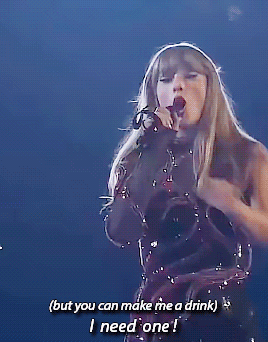
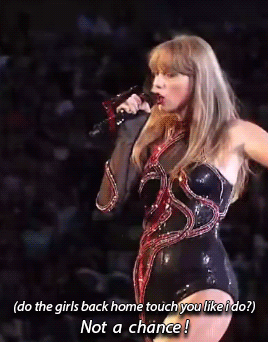
taylor swift ad-libbing during "delicate" at the eras tour 2023
1K notes
·
View notes
Text

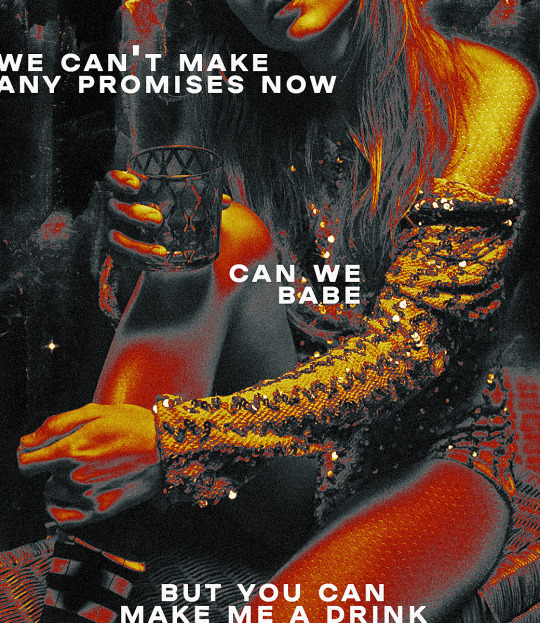
delicate - taylor swift
#*hiss* can't wait for rep tv *hiss*#taylor swift#*mine#the eras tour#tscreators#tswiftedit#taylorswiftedit#taylor swift edit#tswiftlyrics#*reputation#reputation#reputation era#delicate#reputation tv#reputation taylor swift
451 notes
·
View notes
Text


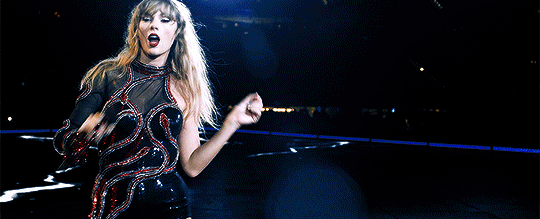
380 notes
·
View notes
Text
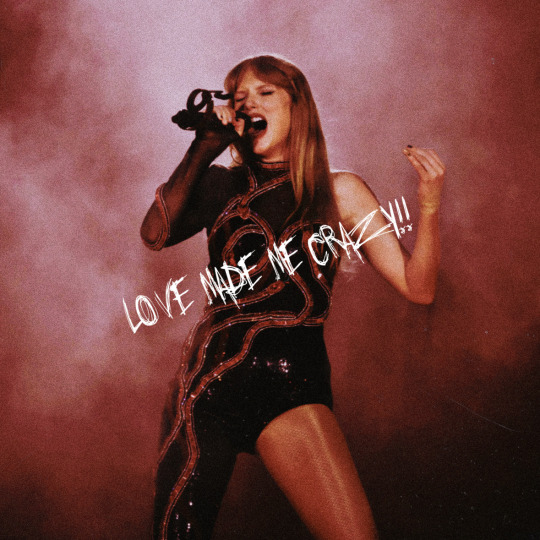
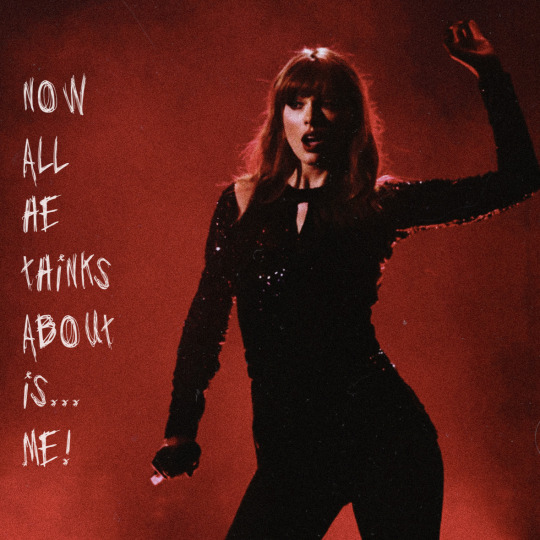
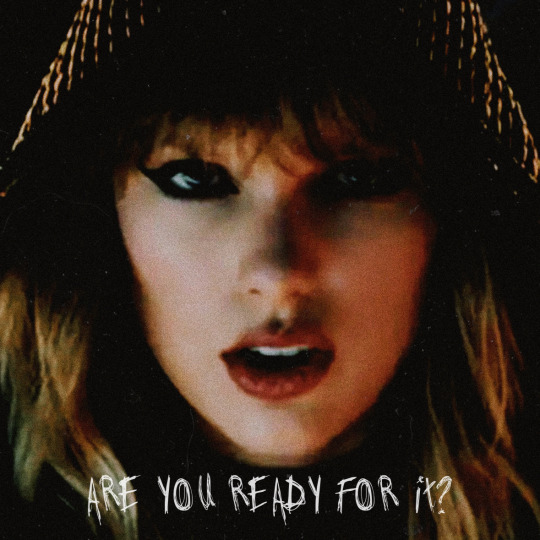
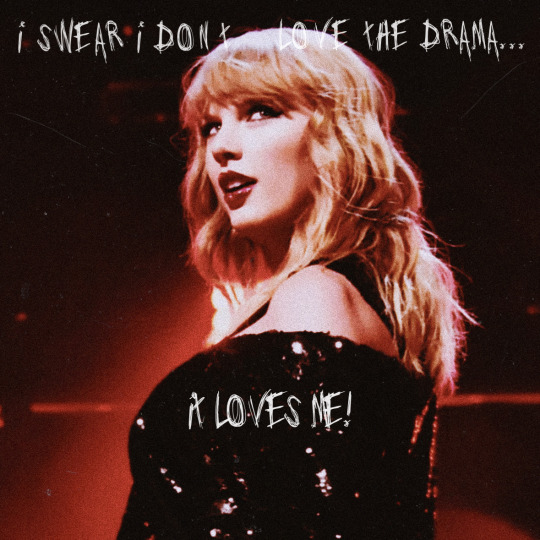
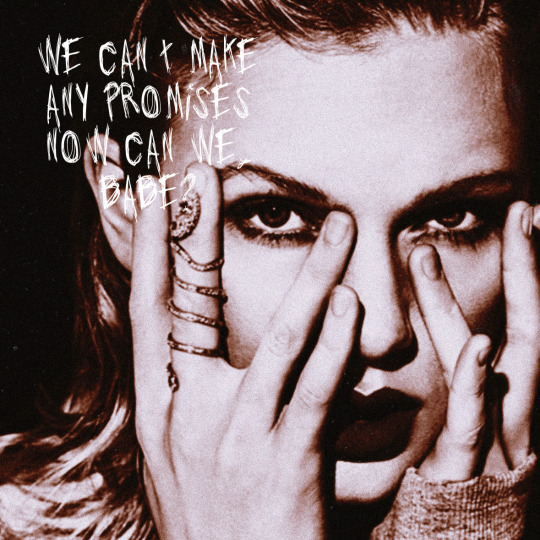
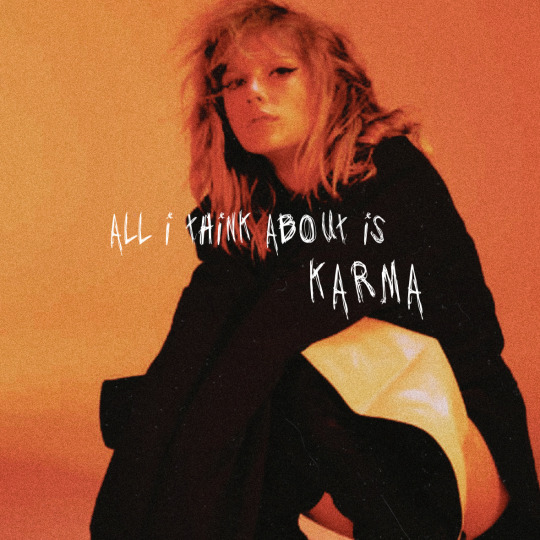
We think we know someone, but the truth is that we only know the version of them that they have chosen to show us.
reputation - taylor swift (nov. 10, 2017)
#taylor swift#taylurking#ts edit#tswiftlyrics#candy swift#tswiftedit#my edit#tsedit#ts lyrics#tsgraphics#tscreators#reputation#don't blame me#i did something bad#ready for it#end game#delicate#look what you made me do#reputation era#tusermattie#userloren#useronedirrection
456 notes
·
View notes
Text

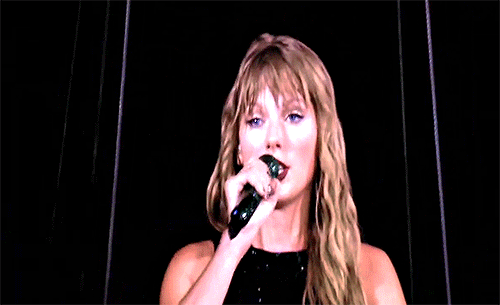

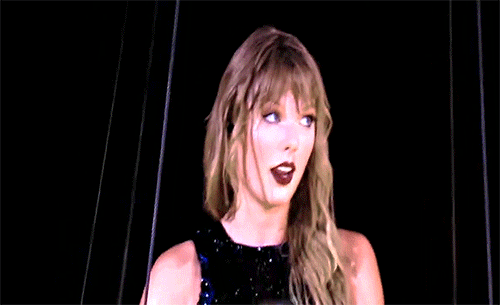
Isn't it? delicate
#taylor swift#taylorswift#mygifs#myedits#taylor alison swift#tswiftgif#tswiftedit#tswiftgraphic#delicate#taylor swift delicate#tide pod dress#delicate dresses#reputation stadium tour#rep era#taylorswiftedit#taylorswiftgif#networkthirteen#tscreators#tsuserjen#she's so cute pls
281 notes
·
View notes
Text

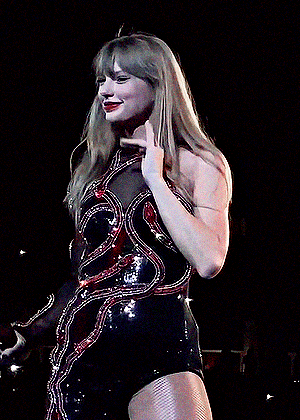
My reputation's never been worse so you must like me for me
#taylor swift#the eras tour#taylor swift gifs#eras tour gifs#gifset#taylor swift edit#ts edit#tswiftedit#ts gifs#tswiftgif#*mine#*mine: eras#reputation#delicate#*100#*500
798 notes
·
View notes
Text

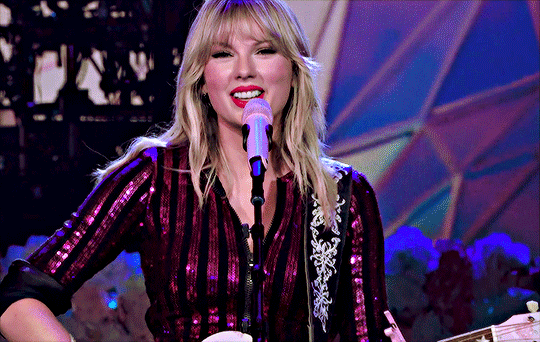
but you can make me a drink!!
#taylor swift#tswiftgif#tswiftedit#tswift#ts#tsgif#tsedit#taylor#tscreatorsnet#candy swift#taylor swift gif#delicate#rep era#rep tv#amazon#deathbyathousandcuts 2023
647 notes
·
View notes
Text
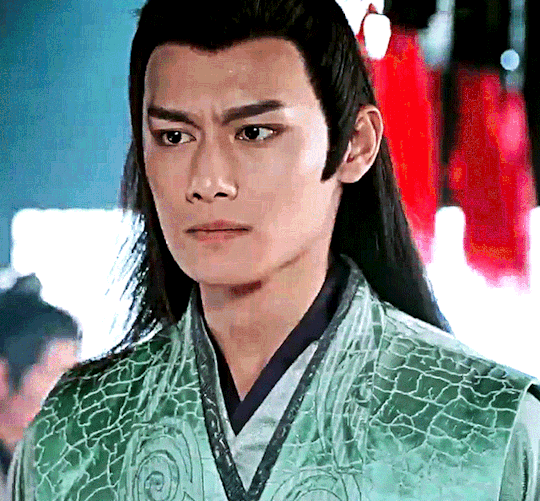


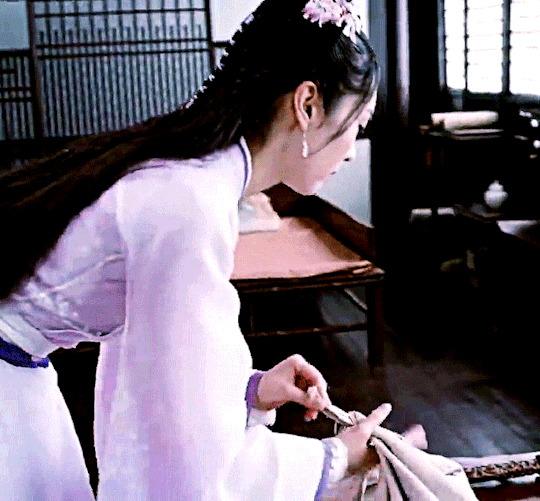
'An explicit guide on how to react to your crush being mean to you' by jiang cheng and jiang yanli
#While the vibes are a bit different#Like. jyl is more like suffering madonna girl. Lana del Rey vibes kinda. like 'you don't want me? fine. I'll bear it like a delicate maiden#jc is more like snobby girl. Taylor swift vibes. like 'you don't want this ass girl? whatever#bye bye. it's britney bitch.' Idk if it does make sense lol#anyway. beloveds#My point is that as much jc is his mother's son. cql!jc is very much his sister's brother. In particular in the present times imo#*mgifs
223 notes
·
View notes
Text
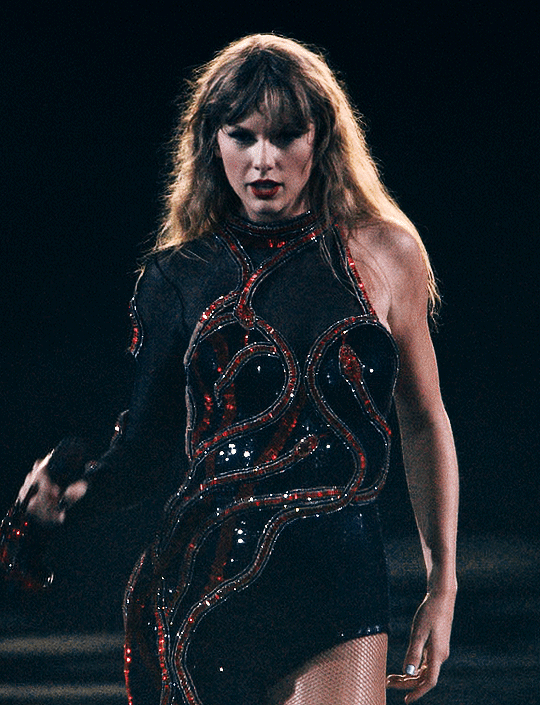
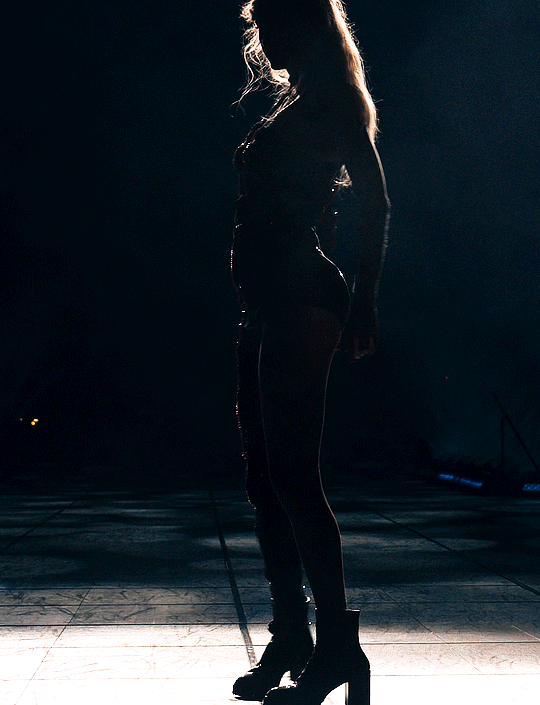
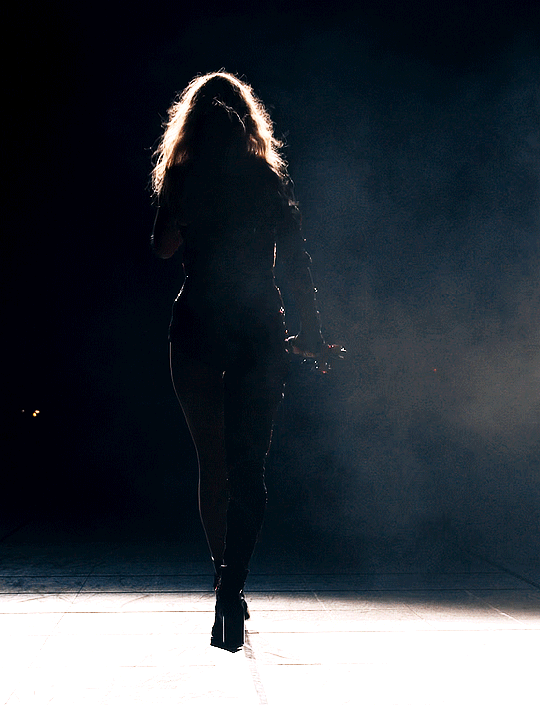
is it too soon to do this yet? 'cause I know that it's delicate
#taylor swift#tswiftedit#taylorswiftedit#tswiftgif#usersar#tscreators#tsedit#userelena#tswift#eras tour#chewieblog#t swift#*gif#reputation#delicate#1k#2k
2K notes
·
View notes
Text
In 2006, the year Taylor Swift released her first single, a closeted country singer named Chely Wright, then 35, held a 9-millimeter pistol to her mouth. Queer identity was still taboo enough in mainstream America that speaking about her love for another woman would have spelled the end of a country music career. But in suppressing her identity, Ms. Wright had risked her life.
In 2010, she came out to the public, releasing a confessional memoir, “Like Me,” in which she wrote that country music was characterized by culturally enforced closeting, where queer stars would be seen as unworthy of investment unless they lied about their lives. “Country music,” she wrote, “is like the military — don’t ask, don’t tell.”
The culture in which Ms. Wright picked up that gun — the same one in which Ms. Swift first became a star — was stunningly different from today’s. It’s dizzying to think about the strides that have been made in Americans’ acceptance of the L.G.B.T.Q. community over the past decade: marriage equality, queer themes dominating teen entertainment, anti-discrimination laws in housing and, for now, in the workplace. But in recent years, a steady drip of now-out stars — Cara Delevingne, Colton Haynes, Elliot Page, Kristen Stewart, Raven-Symoné and Sam Smith among them — have disclosed that they had been encouraged to suppress their queerness in order to market projects or remain bankable.
The culture of country music hasn’t changed so much that homophobia is gone. Just this past summer, Adam Mac, an openly gay country artist, was shamed out of playing at a festival in his hometown because of his sexual orientation. In September, the singer Maren Morris stepped away from country music; she said she did so in part because of the industry’s lingering anti-queerness. If country music hasn’t changed enough, what’s to say that the larger entertainment industry — and, by extension, our broader culture — has?
Periodically, I return to a video, recorded by a shaky hand more than a decade ago, of Ms. Wright answering questions at a Borders bookstore about her coming out. She likens closeted stardom to a blender, an “insane” and “inhumane” heteronormative machine in which queer artists are chewed to bits.
“It’s going to keep going,” Ms. Wright says, “until someone who has something to lose stands up and just says ‘I’m gay.’ Somebody big.” She continues: “We need our heroes.”
What if someone had already tried, at least once, to change the culture by becoming such a hero? What if, because our culture had yet to come to terms with homophobia, it wasn’t ready for her?
What if that hero’s name was Taylor Alison Swift?
In the world of Taylor Swift, the start of a new “era” means the release of new art (an album and the paratexts — music videos, promotional ephemera, narratives — that supplement it) and a wholesale remaking of the aesthetics that will accompany its promotion, release and memorializing. In recent years, Ms. Swift has dominated pop culture to such a degree that these transformations often end up altering American culture in the process.
In 2019, she was set to release a new album, “Lover,” the first since she left Big Machine Records, her old Nashville-based label, which she has since said limited her creative freedom. The aesthetic of what would be known as the “Lover Era” emerged as rainbows, butterflies and pastel shades of blue, purple and pink, colors that subtly evoke the bisexual pride flag.
On April 26, Lesbian Visibility Day, Ms. Swift released the album’s lead single, “ME!,” in which she sings about self-love and self-acceptance. She co-directed a campy music video to accompany it, which she would later describe as depicting “everything that makes me, me.” It features Ms. Swift dancing at a pride parade, dripping in rainbow paint and turning down a man’s marriage proposal in exchange for a … pussy cat.
At the end of June, the L.G.B.T.Q. community would celebrate the 50th anniversary of the Stonewall Riots. On June 14, Ms. Swift released the video for her attempt at a pride anthem, “You Need to Calm Down,” in which she and an army of queer celebrities from across generations — the “Queer Eye” hosts, Ellen DeGeneres, Billy Porter, Hayley Kiyoko, to name a few — resist homophobia by living openly. Ms. Swift sings that outrage against queer visibility is a waste of time and energy: “Why are you mad, when you could be GLAAD?”
The video ends with a plea: “Let’s show our pride by demanding that, on a national level, our laws truly treat all of our citizens equally.” Many, in the press and otherwise, saw the video as, at best, a misguided attempt at allyship and, at worst, a straight woman co-opting queer aesthetics and narratives to promote a commercial product.
Then, Ms. Swift performed “Shake It Off” as a surprise for patrons at the Stonewall Inn. Rumors — that were, perhaps, little more than fantasies — swirled in the queerer corners of her fandom, stoked by a suggestive post by the fashion designer Christian Siriano. Would Ms. Swift attend New York City’s WorldPride march on June 30? Would she wear a dress spun from a rainbow? Would she give a speech? If she did, what would she declare about herself?
The Sunday of the march, those fantasies stopped. She announced that the music executive Scooter Braun, who she described as an “incessant, manipulative” bully, had purchased her masters, the lucrative original recordings of her work.
Ms. Swift’s “Lover” was the first record that she created with nearly unchecked creative freedom. Lacking her old label’s constraints, she specifically chose to feature activism for and the aesthetics of the L.G.B.T.Q. community in her confessional, self-expressive art. Even before the sale of her masters, she appeared to be stepping into a new identity — not just an aesthetic — that was distinct from that associated with her past six albums.
When looking back on the artifacts of the months before that album’s release, any close reader of Ms. Swift has a choice. We can consider the album’s aesthetics and activism as performative allyship, as they were largely considered to be at the time. Or we can ask a question, knowing full well that we may never learn the answer: What if the “Lover Era” was merely Ms. Swift’s attempt to douse her work — and herself — in rainbows, as so many baby queers feel compelled to do as they come out to the world?
There’s no way of knowing what could have happened if Ms. Swift’s masters hadn’t been sold. All we know is what happened next. In early August, Ms. Swift posted a rainbow-glazed photo of a series of friendship bracelets, one of which says “PROUD” with beads in the color of the bisexual pride flag. Queer people recognize that this word, deployed this way, typically means that someone is proud of their own identity. But the public did not widely view this as Ms. Swift’s coming out.
Then, Vogue released an interview with Ms. Swift that had been conducted in early June. When discussing her motivations for releasing “You Need to Calm Down,” Ms. Swift said, “Rights are being stripped from basically everyone who isn’t a straight white cisgender male.” She continued: “I didn’t realize until recently that I could advocate for a community that I’m not a part of.” That statement suggests that Ms. Swift did not, in early June, consider herself part of the L.G.B.T.Q. community; it does not illuminate whether that is because she was a straight, cis ally or because she was stuck in the shadowy, solitary recesses of the closet.
On Aug. 22, Ms. Swift publicly committed herself to the as-of-then-unproven project of rerecording and rereleasing her first six albums. The next day, she finally released “Lover,” which raises more questions than it answers. Why does she have to keep secrets just to keep her muse, as all her fans still sing-scream on “Cruel Summer”? About what are the “hundred thrown-out speeches I almost said to you,” in her chronicle of self-doubt, “The Archer,” if not her identity? And what could the album’s closing words, which come at the conclusion of “Daylight,” a song about stepping out of a 20-year darkness and choosing to “let it go,” possibly signal?
I want to be defined by the things that I love,
Not the things I hate,
Not the things that I’m afraid of, I’m afraid of,
Not the things that haunt me in the middle of the night,
I just think that,
You are what you love.
The first time I viewed “Lover” through the prism of queerness, I felt delirious, almost insane. I kept wondering whether what I was perceiving in her work was truly there or if it was merely a mirage, born of earnest projection.
My longtime reading of Ms. Swift’s celebrity — like that of a majority of her fan base — had been stuck in the lingering assumptions left by a period that began more than a decade and a half ago, when a girl with an overexaggerated twang, Shirley Temple curls and Georgia stars in her eyes became famous. Then, she presented as all that was to be expected of a young starlet: attractive yet virginal, knowing yet naïve, not talented enough to be formidable, not commanding enough to be threatening, confessional, eager to please. Her songs earnestly depicted the fantasies of a girl raised in a traditional culture: high school crushes and backwoods drives, princelings and wedding rings, declarations of love that climax only in a kiss — ideally in the pouring rain.
When Ms. Swift was trying to sell albums in that late-2000s media environment, her songwriting didn’t match the image of a sex object, the usual role reserved for female celebrities in our culture. Instead, the story the public told about her was that she laundered her affection to a litter of promising grown men, in exchange for songwriting inspiration. A young Ms. Swift contributed to this narrative by hiding easy-to-decode clues in liner notes that suggested a certain someone was her songs’ inspiration (“SAM SAM SAM SAM SAM SAM,” “ADAM,” “TAY”) or calling out an ex-boyfriend on the “Ellen” show and “Saturday Night Live.” Despite the expansive storytelling in Ms. Swift’s early records, her public image often cast a man’s interest as her greatest ambition.
As Ms. Swift’s career progressed, she began to remake that image: changing her style and presentation, leaving country music for pop and moving from Nashville to New York. By 2019, her celebrity no longer reflected traditional culture; it had instead become a girlboss-y mirror for another dominant culture — that of white, cosmopolitan, neoliberal America.
But in every incarnation, the public has largely seen those songs — especially those for which she doesn’t directly state her inspiration — as cantos about her most recent heterosexual love, whether that idea is substantiated by evidence or not. A large portion of her base still relishes debating what might have happened with the gentleman caller who supposedly inspired her latest album. Feverish discussions of her escapades with the latest yassified London Boy or mustachioed Mr. Americana fuel the tabloid press — and, embarrassingly, much of traditional media — that courts fan engagement by relentlessly, unquestioningly chronicling Ms. Swift’s love life.
Even in 2023, public discussion about the romantic entanglements of Ms. Swift, 34, presumes that the right man will “finally” mean the end of her persistent husbandlessness and childlessness. Whatever you make of Ms. Swift’s extracurricular activities involving a certain football star (romance for the ages? strategic brand partnership? performance art for entertainment’s sake?), the public’s obsession with the relationship has been attention-grabbing, if not lucrative, for all parties, while reinforcing a story that America has long loved to tell about Ms. Swift, and by extension, itself.
Because Ms. Swift hasn’t undeniably subverted our culture’s traditional expectations, she has managed, in an increasingly fractured cultural environment, to simultaneously capture two dominant cultures — traditional and cosmopolitan. To maintain the stranglehold she has on pop culture, Ms. Swift must continue to tell a story that those audiences expect to consume; she falls in love with a man or she gets revenge. As a result, her confessional songs languish in a place of presumed stasis; even as their meaning has grown deeper and their craft more intricate, a substantial portion of her audience’s understanding of them remains wedded to the same old narratives.
But if interpretations of Ms. Swift’s art often languish in stasis, so do the millions upon millions of people who love to play with the dollhouse she has constructed for them. Her dominance in pop culture and the success of her business have given her the rare ability to influence not only her industry but also the worldview of a substantial portion of America. How might her industry, our culture and we, ourselves, change if we made space for Ms. Swift to burn that dollhouse to the ground?
Anyone considering the whole of Ms. Swift’s artistry — the way that her brilliantly calculated celebrity mixes with her soul-baring art — can find discrepancies between the story that underpins her celebrity and the one captured by her songs. One such gap can be found in her “Lover” era. Others appear alongside “dropped hairpins,” or the covert ways someone can signal queer identity to those in the know while leaving others comfortable in their ignorance. Ms. Swift dropped hairpins before “Lover” and has continued to do so since.
Sometimes, Ms. Swift communicates through explicit sartorial choices — hair the colors of the bisexual pride flag or a recurring motif of rainbow dresses. She frequently depicts herself as trapped in glass closets or, well, in regular closets. She drops hairpins on tour as well, paying tribute to the Serpentine Dance of the lesbian artist Loie Fuller during the Reputation Tour or referencing “The Ladder,” one of the earliest lesbian publications in the United States, in her Eras Tour visuals.
During the Eras Tour, Ms. Swift traps her past selves — including those from her “Lover” era — in glass closets.
Dropped hairpins also appear in Ms. Swift’s songwriting. Sometimes, the description of a muse — the subject of her song, or to whom she sings — seems to fit only a woman, as it does in “It’s Nice to Have a Friend,” “Maroon” or “Hits Different.” Sometimes she suggests a female muse through unfulfilled rhyme schemes, as she does in “The Very First Night,” when she sings “didn’t read the note on the Polaroid picture / they don’t know how much I miss you” (“her,” instead of that pesky little “you,” would rhyme). Her songwriting also noticeably alludes to poets whose muses the historical record incorrectly cast as men — Emily Dickinson chief among them — as if to suggest the same fate awaits her art. Stunningly, she even explicitly refers to dropping hairpins, not once, but twice, on two separate albums.
In isolation, a single dropped hairpin is perhaps meaningless or accidental, but considered together, they’re the unfurling of a ballerina bun after a long performance. Those dropped hairpins began to appear in Ms. Swift’s artistry long before queer identity was undeniably marketable to mainstream America. They suggest to queer people that she is one of us. They also suggest that her art may be far more complex than the eclipsing nature of her celebrity may allow, even now.
Since at least her “Lover” era, Ms. Swift has explicitly encouraged her fans to read into the coded messages (which she calls “Easter eggs”) she leaves in music videos, social media posts and interviews with traditional media outlets, but a majority of those fans largely ignore or discount the dropped hairpins that might hint at queer identity. For them, acknowledging even the possibility that Ms. Swift could be queer would irrevocably alter the way they connect with her celebrity, the true product they’re consuming.
There is such public devotion to the traditional narrative Ms. Swift embodies because American culture enshrines male power. In her sweeping essay, “Compulsory Heterosexuality and Lesbian Existence,” the lesbian feminist poet Adrienne Rich identified the way that male power cramps, hinders or devalues women’s creativity. All of the sexist undertones with which Ms. Swift’s work can be discussed (often, even, by fans) flow from compulsory heterosexuality, or the way patriarchy draws power from the presumption that women naturally desire men. She must write about men she surely loves or be unbankable; she must marry and bear children or remain a child herself; she must look like, in her words, a “sexy baby” or be undesirable, “a monster on the hill.”
A woman who loves women is most certainly a monster to a society that prizes male power. She can fulfill none of the functions that a traditional culture imagines — wife, mother, maid, mistress, whore — so she has few places in the historical record. The Sapphic possibility of her work is ignored, censored or lost to time. If there is queerness earnestly implied in Ms. Swift’s work, then it’s no wonder that it, like that of so many other artists before her, is so often rendered invisible in the public imagination.
While Ms. Swift’s songs, largely written from her own perspective, cannot always conform to the idea of a woman our culture expects, her celebrity can. That separation, between Swift the songwriter and Swift the star, allows Ms. Swift to press against the golden birdcage in which she has found herself. She can write about women’s complexity in her confessional songs, but if ever she chooses not to publicly comply with the dominant culture’s fantasy, she will remain uncategorizable, and therefore, unsellable.
Her star — as bright as it is now — would surely dim.
Whether she is conscious of it or not, Ms. Swift signals to queer people — in the language we use to communicate with one another — that she has some affinity for queer identity. There are some queer people who would say that through this sort of signaling, she has already come out, at least to us. But what about coming out in a language the rest of the public will understand?
The difference between any person coming out and a celebrity doing so is the difference between a toy mallet and a sledgehammer. It’s reasonable for celebrities to be reticent; by coming out, they potentially invite death threats, a dogged tabloid press that will track their lovers instead of their beards, the excavation of their past lives, a torrent of public criticism and the implosion of their careers. In a culture of compulsory heterosexuality, to stop lying — by omission or otherwise — is to risk everything.
American culture still expects that stars are cis and straight until they confess themselves guilty. So, when our culture imagines a celebrity’s coming out, it expects an Ellen-style announcement that will submerge the past life in phoenix fire and rebirth the celebrity in a new image. In an ideal culture, wearing a bracelet that says “PROUD,” waving a pride flag onstage, placing a rainbow in album artwork or suggestively answering fan questions on Instagram would be enough. But our current reality expects a supernova.
Because of that expectation, stars end up trapped behind glass, which is reinforced by the tabloid press’s subtle social control. That press shapes the public’s expectations of others’ identities, even when those identities are chasms away from reality. Celebrities who master this press environment — Ms. Swift included — can bolster their business, but in doing so, they reinforce a heteronormative culture that obsesses over pregnancy, women’s bodies and their relationships with men.
That environment is at odds with the American movement for L.G.B.T.Q. equality, which still has fights to win — most pressingly, enshrining trans rights and squashing nonsensical culture wars. But lately I’ve heard many of my young queer contemporaries — and the occasional star — wonder whether the movement has come far enough to dispense with the often messy, often uncomfortable process of coming out, over and over again.
That questioning speaks to an earnest conundrum that queer people confront regularly: Do we live in this world, or the world to which we ought to aspire?
Living in aspiration means ignoring the convention of coming out in favor of just … existing. This is easier for those who can pass as cis and straight if need be, those who are so wealthy or white that the burden of hiding falls to others and those who live in accepting urban enclaves. This is a queer life without friction; coming out in a way straight people can see is no longer a prerequisite for acceptance, fulfillment and equality.
This aspiration is tremendous, but in our current culture, it is available only to a privileged few. Should such an inequality of access to aspiration become the accepted state of affairs, it would leave those who can’t hide to face society’s cruelest actors without the backing of a vocal, activated community. So every queer person who takes issue with the idea that we must come out ought to ask a simple question — what do we owe one another?
If coming out is primarily supposed to be an act of self-actualization, to form our own identities, then we owe one another nothing. This posture recognizes that the act of coming out implicitly reinforces straight and cis identities as default, which is not worth the rewards of outness.
But if coming out is supposed to be a radical act of resistance that seeks to change the way our society imagines people to be, then undeniable visibility is essential to make space for those without power. In this posture, queer people who can live in aspiration owe those who cannot a real world in which our expansive views of love and gender aren’t merely tolerated but celebrated. We have no choice but to actively, vocally press against the world we’re in, until no one is stuck in it.
And so just for a little while longer, we need our heroes.
But if queer people spend all of our time holding out for a guiding light, we might forgo a more pressing question that if answered, just might inch all of us a bit closer to aspiration. The next time heroes appear, are we ready to receive them?
It takes neither a genius nor a radical to see queerness implied by Ms. Swift’s work. But figuring out how to talk about it before the star labels herself is another matter. Right now, those who do so must inject our perceptions with caveats and doubt or pretend we cannot see it (a lie!) — implicitly acquiescing to convention’s constraints in the name of solidarity.
Lying is familiar to queer people; we teach ourselves to do it from an early age, shrouding our identities from others, and ourselves. It’s not without good reason. To maintain the safety (and sometimes the comfort) of the closet, we lie to others, and, most crucially, we allow others to believe lies about us, seeing us as something other than ourselves. Lying is doubly familiar to those of us who are women. To reduce friction, so many of us still shrink life to its barest version in the name of honor or safety, rendering our lives incomplete, our minds lobotomized and our identities unexplored.
By maintaining a culture of lying about what we, uniquely, have the knowledge and experience to see, we commit ourselves to a vow of silence. That vow may protect someone’s safety, but when it is applied to works of culture, it stymies our ability to receive art that has the potential to change or disrupt us. As those with queer identity amass the power of commonplaceness, it’s worth questioning whether the purpose of one of the last great taboos that constrains us befits its cost.
In every case, is the best form of solidarity still silence?
I know that discussing the potential of a star’s queerness before a formal declaration of identity feels, to some, too salacious and gossip-fueled to be worthy of discussion. They might point to the viciousness of the discourse around “queerbaiting” (in which I have participated); to the harm caused by the tabloid press’s dalliances with outing; and, most crucially, to the real material sacrifices that queer stars make to come out, again and again, as reasons to stay silent.
I share many of these reservations. But the stories that dominate our collective imagination shape what our culture permits artists and their audiences to say and be. Every time an artist signals queerness and that transmission falls on deaf ears, that signal dies. Recognizing the possibility of queerness — while being conscious of the difference between possibility and certainty — keeps that signal alive.
So, whatever you make of Ms. Swift’s sexual orientation or gender identity (something that is knowable, perhaps, only to her) or the exact identity of her muses (something better left a mystery), choosing to acknowledge the Sapphic possibility of her work has the potential to cut an audience that is too often constrained by history, expectation and capital loose from the burdens of our culture.
To start, consider what Ms. Swift wrote in the liner notes of her 2017 album, “reputation”: “When this album comes out, gossip blogs will scour the lyrics for the men they can attribute to each song, as if the inspiration for music is as simple and basic as a paternity test.”
Listen to her. At the very least, resist the urge to assume that when Ms. Swift calls the object of her affection “you” in a song, she’s talking about a man with whom she’s been photographed. Just that simple choice opens up a world of Swiftian wordplay. She often plays with pronouns, trading “you” and “him” so that only someone looking for a distinction between two characters might find one. Turns of phrase often contain double or even triple meanings. Her work is a feast laid specifically for the close listener.
Choosing to read closely can also train the mind to resist the image of an unmarried woman that compulsory heterosexuality expects. And even if it is only her audience who points at rainbows, reading Ms. Swift’s work as queer is still worthwhile, for it undermines the assumption that queer identity impedes pop superstardom, paving the way for an out artist to have the success Ms. Swift has.
After all, would it truly be better to wait to talk about any of this for 50, 60, 70 years, until Ms. Swift whispers her life story to a biographer? Or for a century or more, when Ms. Swift’s grandniece donates her diaries to some academic library, for scholars to pore over? To ensure that mea culpas come only when Ms. Swift’s bones have turned to dust and fragments of her songs float away on memory’s summer breeze?
I think not. And so, I must say, as loudly as I can, “I can see you,” even if I risk foolishness for doing so.
I remember the first time I knew I had seen Taylor Alison Swift break free from the trap of stardom. I wasn’t sitting in a crowded stadium in the pouring rain or cuddled up in a movie theater with a bag of popcorn. I was watching a grainy, crackling livestream of the Eras Tour, captured on a fan’s phone.
It’s late at night, the beginning of her acoustic set of surprise songs, this time performed in a yellow dress. She begins playing “Hits Different.” It’s a new song, full of puns, double entendres and wordplay, that toys with the glittering identities in which Ms. Swift indulges.
She’s rushing, as if stopping, even for a second, will cause her to lose her nerve. She stumbles at the bridge, pauses and starts again; the queen of bridges will not mess this up, not tonight.
There it is, at the bridge’s end: “Bet I could still melt your world; argumentative, antithetical dream girl.” An undeniable declaration of love to a woman. As soon as those words leave her lips, she lets out a whoop, pacing around the stage with a grin that cannot be contained.
For a moment, Ms. Swift was out of the woods she had created for herself as a teenager, floating above the trees. The future was within reach; she would, and will, soon take back the rest of her words, her reputation, her name. Maybe the world would see her, maybe it wouldn’t.
But on that stage, she found herself. I was there. Through a fuzzy fancam, I saw it.
And somehow, that was everything.
#ooooh my word this was BREATHTAKING and so well-said#because coming out is in fact a very delicate thing#full article here for the tumblr crowd!#taylor swift#articles#new york times#gaylor swift#gaylor#lover#chely wright
227 notes
·
View notes